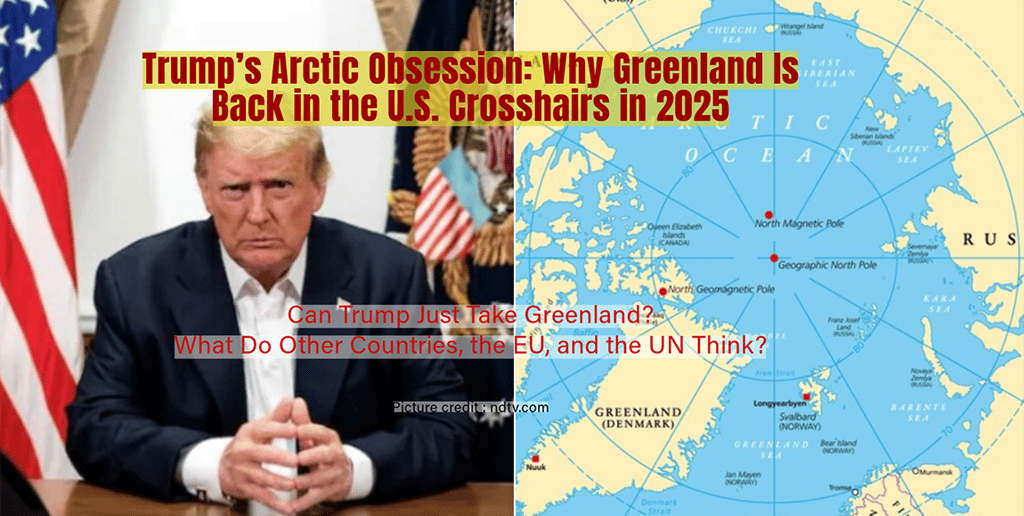Trump’s Arctic Obsession: Why Greenland Is Back in the U.S. Crosshairs in 2025
4/22/20253 min read


Trump’s Arctic Obsession: Why Greenland Is Back in the U.S. Crosshairs in 2025
Greenland is back in the headlines in April 2025, and it’s no surprise why: President Trump’s obsession with the Arctic island has resurfaced amid rising global tensions. With a strategic position, vast resources, and a history of U.S. interest, Greenland is a geopolitical hotspot. But why does Trump want it so badly, and can he just “take” another country’s land? For Boncopia readers who care about politics and global security, let’s explore the history, the stakes, and what the world thinks.
A Brief History: Greenland’s Strategic Allure
Greenland, the world’s largest island, has been under Danish control since the 18th century, with increasing autonomy since 1979. Its sparse population of 56,000 lives on a landmass rich in rare earth minerals, oil, and gas—resources critical for modern technology and energy. During World War II, the U.S. recognized Greenland’s strategic value, establishing military bases like Thule Air Base to counter Soviet threats. The Cold War cemented its role in Arctic security, and today, climate change is opening new shipping routes and resource opportunities, making Greenland more vital than ever.
Trump first expressed interest in buying Greenland in 2019, calling it a “large real estate deal” essential for national security. Denmark and Greenland’s governments rejected the idea, with locals telling the BBC, “Greenland is not for sale”. Fast forward to 2025, and Trump’s interest has reignited, fueled by U.S.-China tensions and Arctic competition.
Why Trump Wants Greenland: The True Reasons
Trump’s renewed focus on Greenland in 2025 isn’t just about real estate—it’s about power. Web ID: 1 reveals Trump’s 2019 motivations: he saw the island’s size (836,000 square miles) as a historic acquisition, akin to the Louisiana Purchase, that could “secure his place in history.” But there’s more to it:
Arctic Security: Greenland’s location between North America and Europe makes it a linchpin for Arctic defense. With China and Russia expanding their Arctic presence, the U.S. wants to strengthen its foothold—Thule Air Base alone isn’t enough.
Resources and Trade: Greenland’s untapped rare earth minerals are crucial for tech manufacturing, especially as Trump’s 104% tariffs on Chinese goods (BBC, April 8, 2025) disrupt supply chains. Controlling Greenland could reduce U.S. reliance on China.
Geopolitical Leverage: Trump’s tariff wars with Canada, Mexico, and the EU (Reuters, February 4, 2025) highlight his aggressive trade strategy. Owning Greenland could give the U.S. leverage in negotiations, especially with Denmark, an EU member.
In January 2025, Danish PM Frederiksen held a 45-minute call with Trump, insisting the U.S. doesn’t need to possess Greenland. But Trump’s recent moves—like sending Second Lady Usha Vance and National Security Adviser Mike Waltz to the island—signal serious intent. Greenland’s outgoing PM Mute Egede called these visits “aggressive,” reflecting local unease.
Can Trump Just Take Greenland?
Legally, no—Trump can’t simply “take” Greenland. International law, upheld by the UN Charter, prohibits acquiring territory by force or coercion. (The Conduct of Foreign Relations: Article II) notes that while the U.S. President has the authority to negotiate treaties, Congress must approve significant actions like territorial acquisition. Historical purchases like Alaska (1867) were consensual deals, not seizures. Senator John Fetterman supports acquisition “along the model of the Louisiana Purchase,” but only with Greenland’s consent.
Trump’s suggestion to redirect federal funds from Puerto Rico to buy Greenland (web ID: 1) raises ethical concerns. Forcing a sale would violate Greenlanders’ right to self-determination—a principle Denmark and the UN fiercely defend. X user @ArcticWatch2025 speculated, “Trump might pressure Denmark with tariffs, but taking Greenland by force would spark a global crisis” (April 16, 2025).
What Do Other Countries, the EU, and the UN Think?
Greenland and Denmark: Most Greenlanders prefer Danish governance over U.S. control, though some hope Trump’s interest will push Denmark to “show Greenland more respect” (web ID: 1). Denmark’s Frederiksen remains firm: Greenland isn’t for sale.
EU: As a NATO ally, the EU supports Denmark’s sovereignty. EU leaders, already wary of Trump’s tariff threats (Reuters, February 4, 2025), would likely view any U.S. move on Greenland as a violation of international norms, potentially straining transatlantic relations.
UN: The UN would almost certainly condemn any coercive action, highlighting that international law governs such matters—any attempt to “take” Greenland would face UN sanctions and global backlash.
China and Russia: Both nations have Arctic ambitions and might exploit U.S. aggression to justify their expansion, escalating tensions.
What’s Next for Greenland in 2025?
Greenland’s strategic value will only grow as Arctic competition heats up. Trump’s interest may lead to negotiations—or pressure tactics—but a forced takeover seems unlikely given global opposition. For Boncopia readers, this raises big questions about U.S. foreign policy and the ethics of power.
Thought-Provoking Questions:
Should the U.S. pursue Greenland for security, or respect its autonomy?
How might Trump’s Greenland ambitions affect U.S.-EU relations in 2025?
What role should the UN play in protecting small nations like Greenland?
hello@boncopia.com
+13286036419
© 2025. All rights reserved.